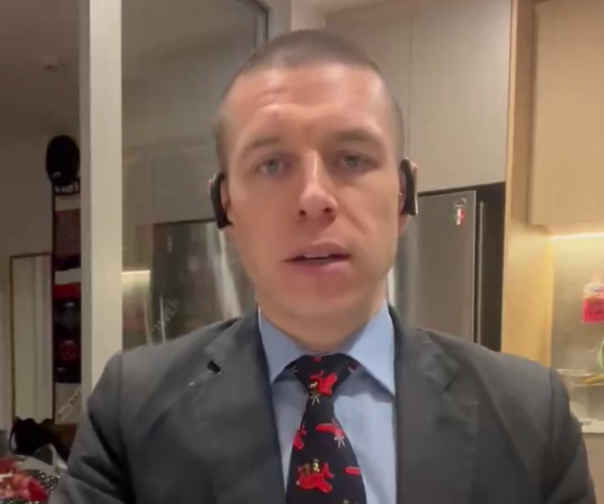Auckland lawyer Thomas Newman has raised a formal complaint to New Zealand’s Regulation Review Committee, challenging the compulsory inclusion of tikanga Māori in legal education.
The submission, which supports a complaint by prominent legal expert Gary Judd KC, contends that the requirement unduly infringes on the personal rights and freedoms of law students, while also questioning the relevance of tikanga to modern legal practice. Newman argues that forcing law students to study tikanga as a core subject represents an overreach of regulatory power and calls for the Regulation to be disallowed by Parliament.
The core of Newman’s submission focuses on how the inclusion of tikanga burdens students’ freedom of thought, conscience, and belief, as protected under the New Zealand Bill of Rights Act 1990 (NZBORA). Drawing on “captive audience” jurisprudence, a body of case law that protects unwilling listeners from being subjected to unwanted speech, Newman claims that students are being forced into a position where they cannot avoid being exposed to ideas that may conflict with their deeply held personal or religious beliefs.
“It is a violation of a person’s rights to be made to hear a message or give an audience to ideas against their will,” Newman asserts.
He also questions the practical relevance of tikanga to legal practice, stating that it is more of a cultural or quasi-religious value system than a legal framework applicable to most areas of New Zealand law. In his view, compulsory teaching of tikanga is disproportionate to its actual necessity in legal practice. Citing examples of core statutes and legal rules that do not reference tikanga, Newman argues that the regulation is excessive.
While acknowledging that tikanga is relevant in specific legal contexts, such as Treaty-related matters or Māori customary law cases, Newman suggests that these topics should be offered as elective courses rather than mandatory components of legal education.
Newman also raises concerns that the push to make tikanga compulsory is part of a broader political agenda to advance the role of tikanga within New Zealand’s legal framework.
He refers to the recent Supreme Court decision in Ellis v R, where tikanga was declared as New Zealand’s “first law,” and argues that this declaration lacks the necessary legal or statutory grounding. Newman argues that Parliament has not defined tikanga as law and that such a radical shift in legal education should be subject to parliamentary debate rather than imposed by regulatory bodies.
Opposition to the compulsory inclusion of tikanga is not limited to personal rights.
Newman’s submission highlights concerns about academic freedom, asserting that the academic environment could become hostile to dissent or criticism of tikanga if the regulation is enforced. He notes recent incidents where free speech on university campuses has been stifled, further raising the risk that students will feel pressured to conform to a particular narrative on tikanga.
The submission concludes by urging the Regulation Review Committee to refer the regulation to Parliament for rejection the matter should be debated in the House, where broader public input and scrutiny can be applied. He advocates for less burdensome options, such as offering tikanga as an elective subject for interested students, ensuring that law education respects the rights of students while catering to those who wish to study Māori customary law.
The challenge comes amid growing national discussions about the role of tikanga in New Zealand’s legal and political framework.
Judd and Newman’s arguments will be heard tomorrow in Parliament House in Wellington. Supporters are encouraged come along in person, to Committee Meeting Room 4, with Judd speaking at 3.30pm and Newman at 3.45pm.
Tikanga complaint update
G’day everyone,
The complaint filed by Gary Judd KC to the Regulations Reviews Committee has a hearing this Wednesday from 3:30 to 4:05pm in Committee Meeting Room 4 at Parliament House, Wellington.
Gary’s first up at 3:30pm, followed by me at 3:45… pic.twitter.com/LWpCFtunXc
— Thomas Newman (@ThomasMNewman) October 14, 2024


“While acknowledging that tikanga is relevant in specific legal contexts, such as Treaty-related matters or Māori customary law cases, Newman suggests that these topics should be offered as elective courses rather than mandatory components of legal education”.
Better still, if parliament has supreme sovereign powers as it claims, there is no reason why the 1975 Treaty of Waitangi Act, the Waitangi Tribunal and all the other apartheid Acts and statutes which give explicit recognition to the treaty, (which are not yet entrenched) to be removed from legislation before the next election.
This UN driven agenda forcing our country to become a tribal Aotearoa apartheid Inc has got to be derailed fast.
A lazy lawyer….
I wouldn’t worry coz the whole construct is the keha way anyway, it’s not tuturu Maori future lawyers are learning, the learning is skewed but at least the Maori wars were updated in history
Having worked in 2 govt ministries I know this stuff is forced upon public servants, no choice – do it or else! No dissent allowed.
It really is a quasi religion, a part of woke culture.
Jeepers! Stupid retarded ‘progressive’ woke shite yet again.
Heaven help us all.
Heaven is a closed shop
All white